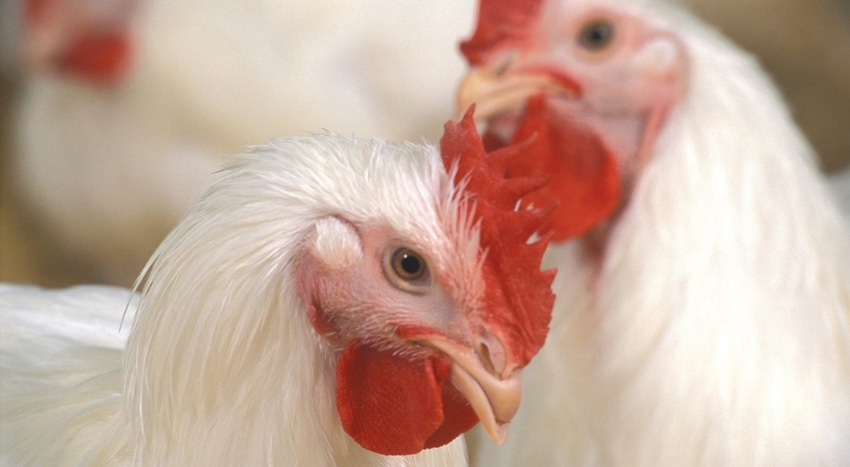March 16, 2022

Agriculture departments in the Intermountain West are urging poultry producers to step up biosecurity measures as the presence of highly pathogenic avian influenza has so far been confirmed in eight Midwestern and Eastern states.
“This disease poses a threat to our poultry industry, backyard hobby flocks, and human health,” said Dr. Dean Taylor, Utah's State Veterinarian. “Care should be used in handling poultry or wildlife.”
Wisconsin was the latest state to confirm HPAI on Monday, March 14, as the disease was detected in a commercial laying flock of chickens in Jefferson County, Wis. The other affected states are Missouri, Indiana, Kentucky, Iowa, South Dakota, Maryland and Delaware.
Indicators of HPAI in avian flocks are incidents of high death loss among flocks, nasal discharge, decreased appetite or water consumption, and lack of coordination in birds, explains the Utah Department of Agriculture and Food. Avian influenza is frequently spread through migratory waterfowl, and these birds often do not show any symptoms.
The Wisconsin outbreak marks the third case of HPAI to be confirmed in a commercial layer operation in the U.S. The other two cases were in Maryland and Delaware. Those two cases resulted in the loss of more than 1.6 million laying hens.
The most effective means to control this disease is to practice good biosecurity at both large commercial facilities and in-home flocks of poultry. Greater risk exists when waterfowl are in close proximity to domestic fowl, agriculture officials say.
Biosecurity important
“Although Colorado has not had a case of the Highly Pathogenic Avian Influenza so far this year, the fact that it has been confirmed in Eastern and Midwest states means Colorado poultry producers and bird owners must increase biosecurity measures in their own operations,” said Colorado State Veterinarian Dr. Maggie Baldwin.
“Flock owners should review their biosecurity plans and implement practices such as limiting introduction of new birds into their flocks and limiting exposure of their birds to wild birds and other poultry flocks," Baldwin said. "People, equipment, vehicles, and other fomites can also serve as a mechanism for transmission of disease and need to be addressed in biosecurity plans.”
Here is what flock owners can do, according to the Colorado agency:
Increase biosecurity: It is extremely important for poultry owners to increase biosecurity measures to protect their birds from HPAI. The USDA Defend the Flock website has helpful resources for keeping poultry healthy in any operation. Commercial poultry producers can use this toolkit to assess their biosecurity practices and preparedness.
Monitor flocks: Monitor your flock for clinical signs of HPAI, including monitoring production parameters (feed and water consumption, egg production) and increased morbidity and mortality. Any changes in production parameters that could indicate HPAI should be reported.
Report disease: It is important for veterinarians and producers to report any suspicious disease events in poultry flocks to your state veterinarian's office.
Source: Utah Department of Food and Agriculture, Colorado Department of Agriculture, which is solely responsible for the information provided and is wholly owned by the source. Informa Business Media and all its subsidiaries are not responsible for any of the content contained in this information asset.
About the Author(s)
You May Also Like






